The Asia Pacific University of Technology & Innovation (APU) was honoured to host a distinguished visit from Deputy Health Minister, YB Dato Lukanisman Awang Sauni, on 30 June 2025. This visit follows the Ministry of Health (MOH) Malaysia’s appointment of APU as one of its official consultants to the Health Performance Unit (HPU) on 26 May 2025.
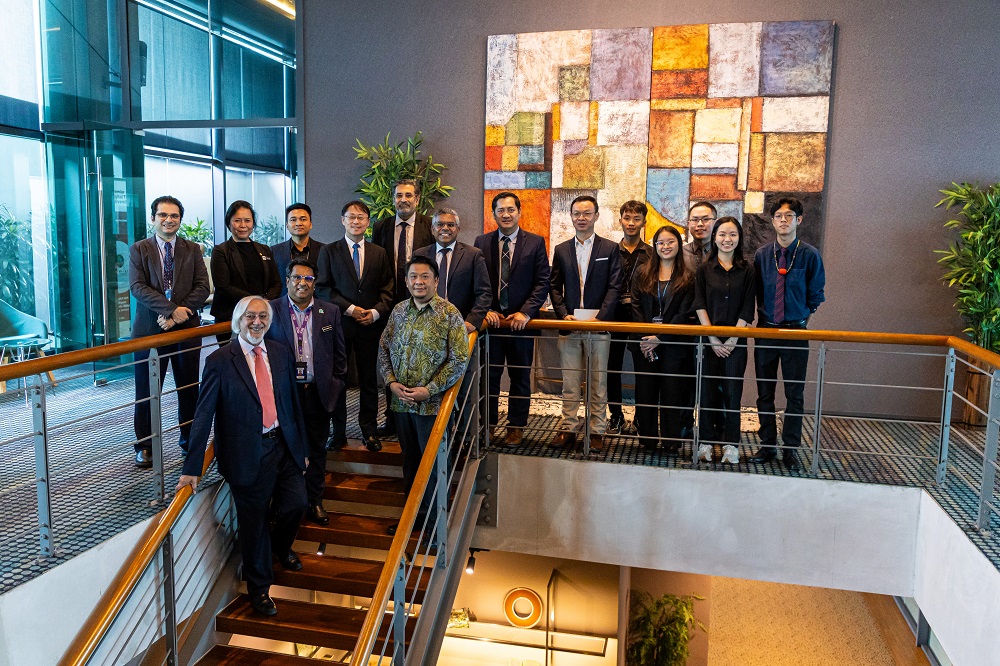
Accompanied by Dr Saravanan S.R. Sundaramurthy, Director of the HPU, and senior officers from the MOH, the Deputy Health Minister spent three hours at APU’s campus, engaging in dialogue with the university’s senior leadership team, led by Datuk Parmjit Singh, Chief Executive Officer of APU. The visit included an extensive tour of the university’s high-tech labs, affirming APU’s standing as a Premier Digital Tech Institution (PDTI) and a strategic partner in national healthcare innovation.
Embracing Digital Healthcare for a Stronger, Smarter System
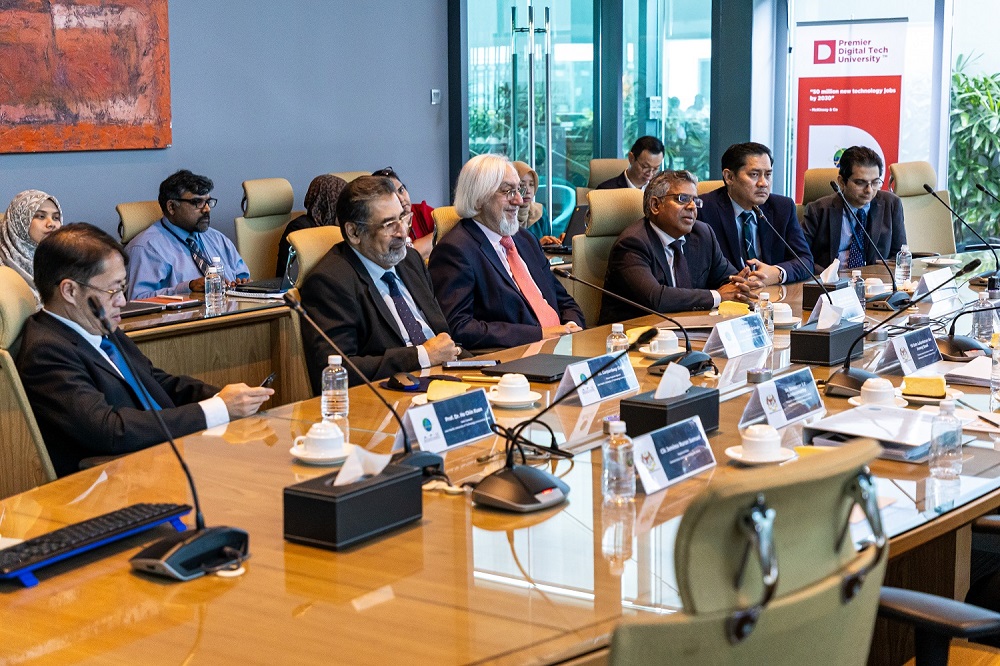
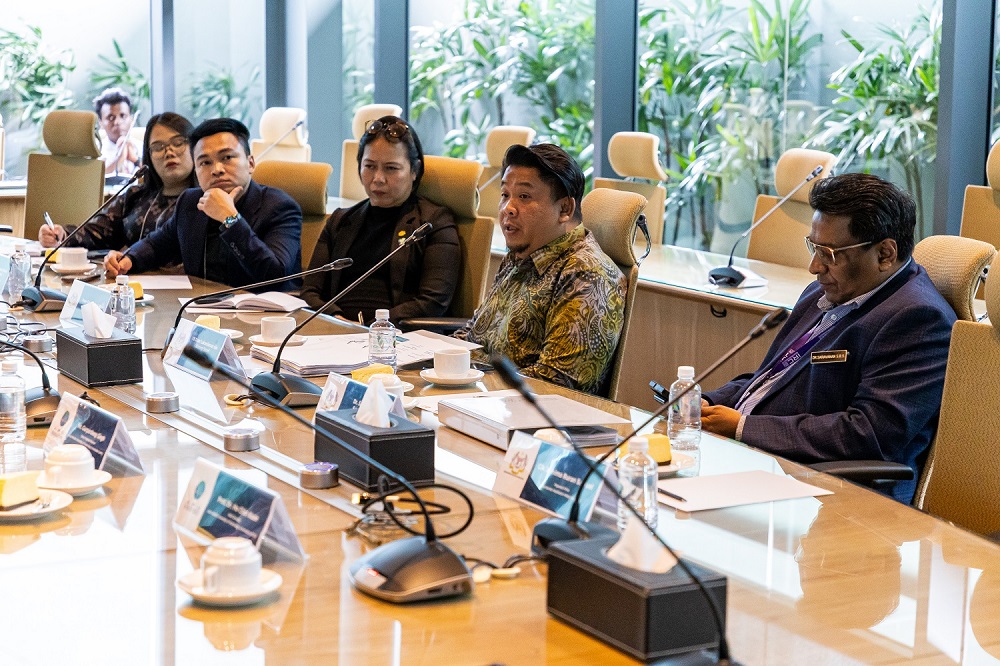
During the session, Dato Lukanisman emphasised that Malaysia’s healthcare landscape is undergoing a transformative shift, steered by digital innovation, strategic planning, and a firm policy direction. “To enhance system interoperability, MOH is working towards the rollout of a nationwide electronic medical record (EMR) system, placing cybersecurity and data privacy at the core,” he said. He noted that public trust remains a key hurdle, as seen in countries like Singapore, Australia, and parts of Europe. “Building that trust through transparent data governance is essential,” he added.
Innovation Through Legislation, Collaboration and Upskilling
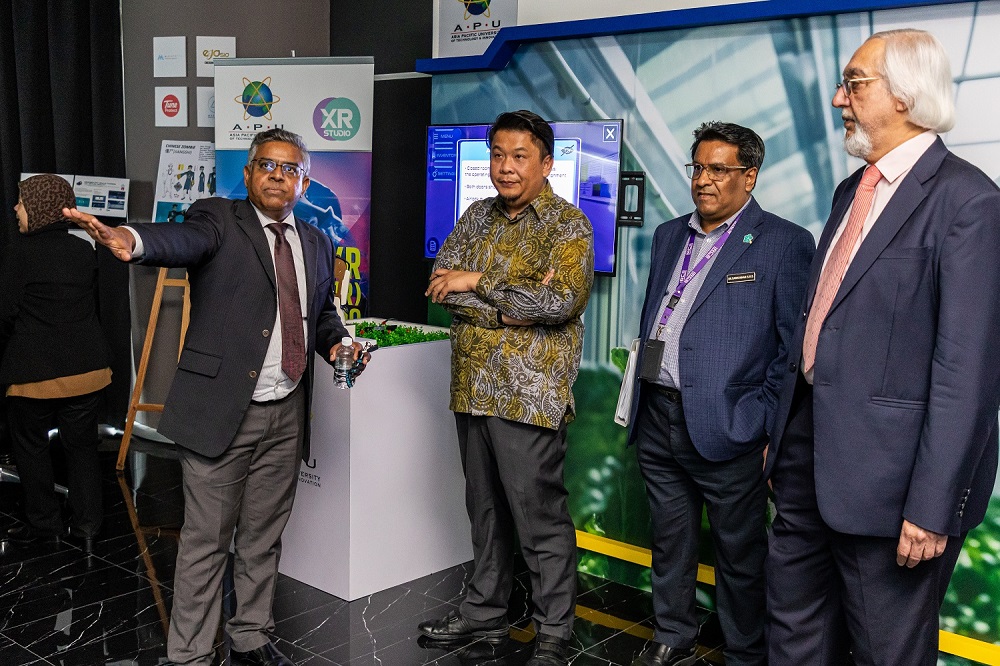
The Deputy Health Minister highlighted the Ministry’s efforts in exploring legislation to regulate the use of AI in healthcare. “We are ensuring that while technology supports clinical decisions, it never overrides medical autonomy,” he remarked. He elaborated on the scope of the Ministry’s Digital Health Division, which is now tasked not only with software and hardware development but also with shaping policies around telemedicine, medical devices, and digital standards.
He also expressed optimism about collaborations with private universities such as APU, particularly in upskilling healthcare professionals and broadening postgraduate education pathways. “Our future-ready system must be built on strong academic and industry partnerships,” he said.
APU’s Role in Driving HealthTech and Research for Commercialisation
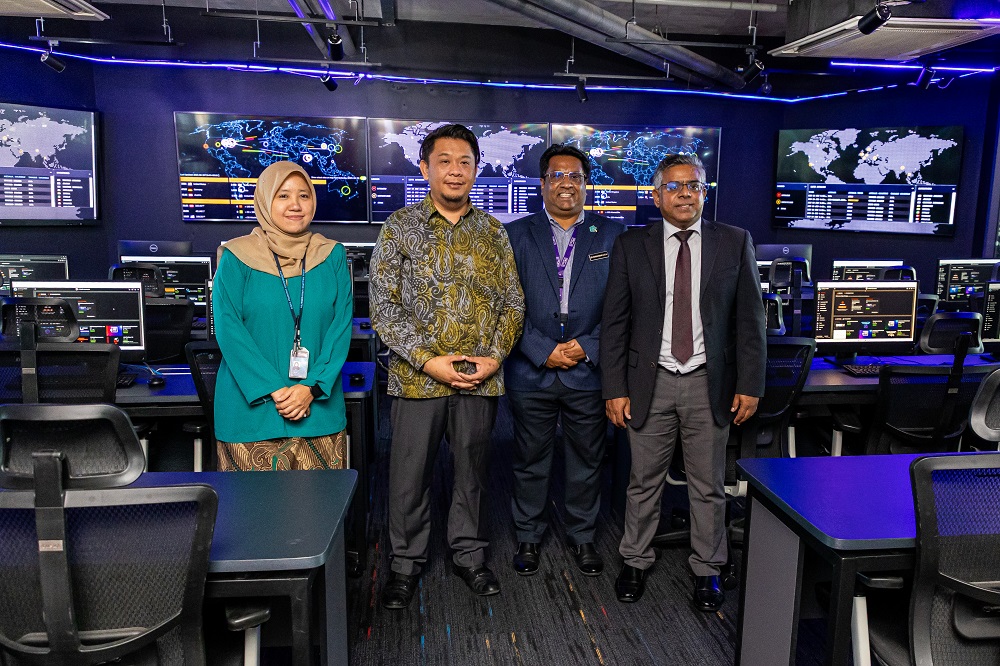
Leading the consultancy efforts for MOH’s Health Performance Unit is APU’s Chief Enterprise & Innovation Officer, Prof Ir EUR ING Dr Vinesh Thiruchelvam, supported by Dr Julia Juremi, Head of the Forensics and Cyber Security Research Centre (FSeC), and Ms Hema Latha Krishna Nair, Head of the Asia Pacific Centre for Analytics (APCA).
During his presentation, Prof Vinesh detailed APU’s decade-long journey in healthcare innovation. Under its structured 10-year development framework, APU has strategically aligned its research and talent development with national economic drivers, especially in healthcare. “We are engaging undergraduate students in real-world, impact-driven innovation,” he noted.
He also emphasised plans for MOH and APU to co-develop entrepreneurs within the Ministry, transforming innovations into commercial products. Among the initiatives is the Asia Pacific Centre for Robotic Engineering (APCoRE), which is pioneering biomedical robotics such as brain-computer interfaces, VR-based rehabilitation systems, soft robotic mobility aids, and TremorX solutions for Parkinson’s patients.
Cutting-Edge Research and Real-World Impact
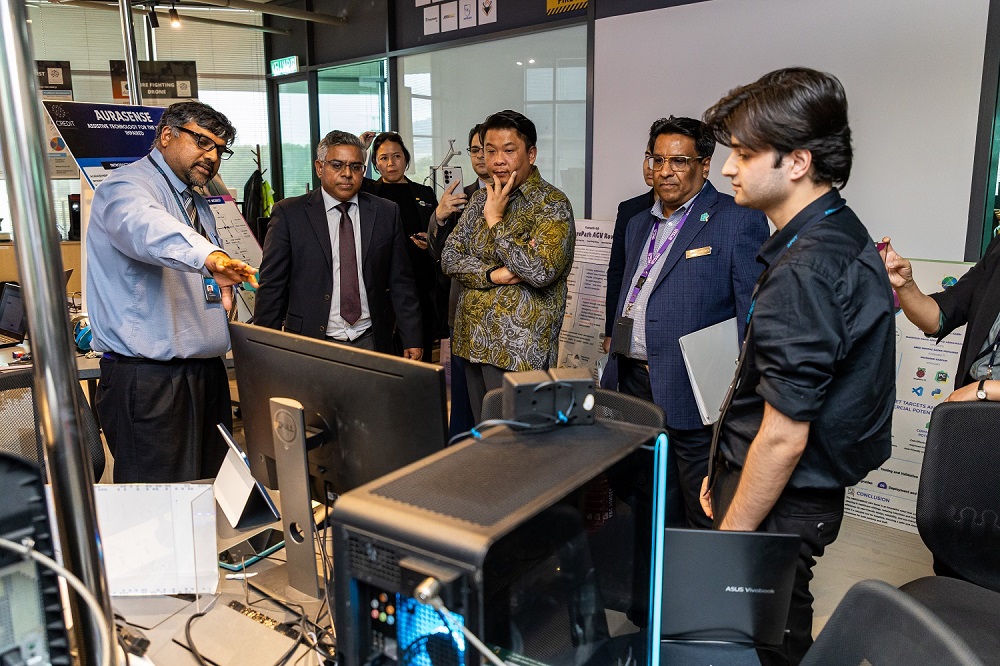
Ms Hema Latha and her team at APCA are advancing predictive and prescriptive analytics to support clinical decision-making, including disease forecasting tools and treatment rescheduling systems. APU’s broader research efforts also span epidemiological studies such as Type 2 diabetes prevalence, dengue outbreak modelling, and insights into nasopharyngeal carcinoma, leveraging global datasets like those from the US CDC.
Further projects include AI and machine learning collaborations with Advanced Pact on ventilator maintenance and XR technologies led by Ts Dr Siti Azreena, XR Studio Lead at APU, for immersive medical training and mental health awareness.
In addition, Ir Narendran Ramasenderan, Director of APU’s Centre for IoT and Drones (CREDIT), is developing automated hospital transport systems, medical drones, and AI disease detection tools, affirming APU’s multidisciplinary innovation capacity.
Strengthening the Talent Pipeline and Entrepreneurship
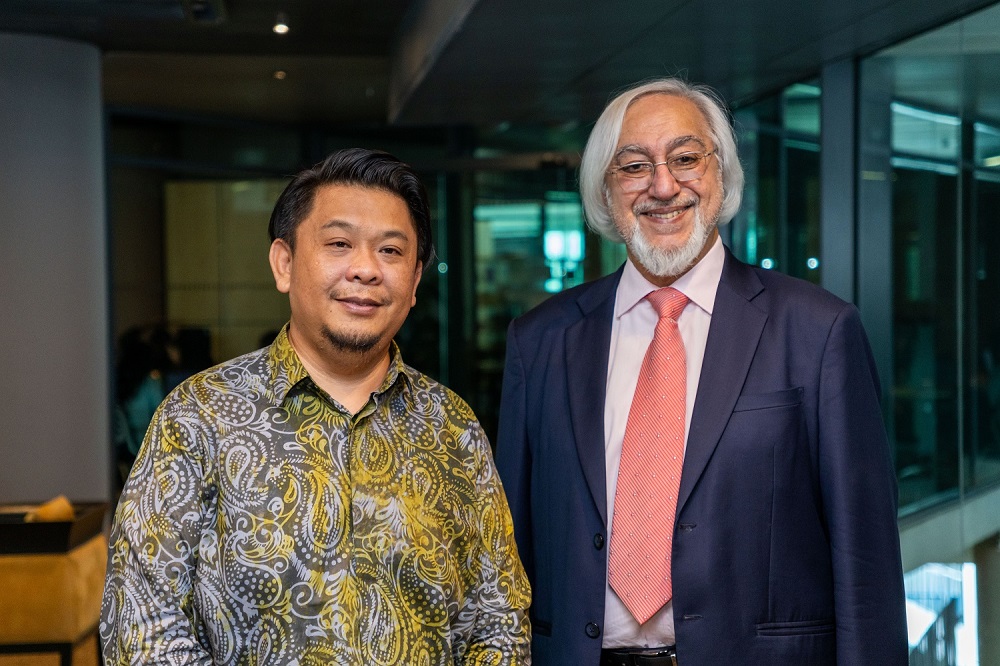
In his concluding remarks, Datuk Parmjit Singh underscored the importance of cultivating future-ready talent and bridging the gap between research and industry application. “Talent is the cornerstone of economic progress. At APU, we focus on producing graduates who are not only skilled but globally competitive, particularly in cybersecurity,” he said.
He responded to Dato Lukanisman’s remarks on challenges such as the emigration of skilled professionals. “APU’s model of ‘overproducing’ qualified graduates helps counteract brain drain, with many of our alumni now contributing abroad,” he explained.
Datuk Parmjit highlighted that a significant portion of APU’s academic staff are former industry professionals, ensuring the curriculum remains relevant and practical. APU’s strong culture of entrepreneurship is further reinforced through strategic partnerships and an active alumni network, creating a supportive ecosystem for innovation and economic contribution.
Inspiring the Next Generation: A Sarawakian Connection
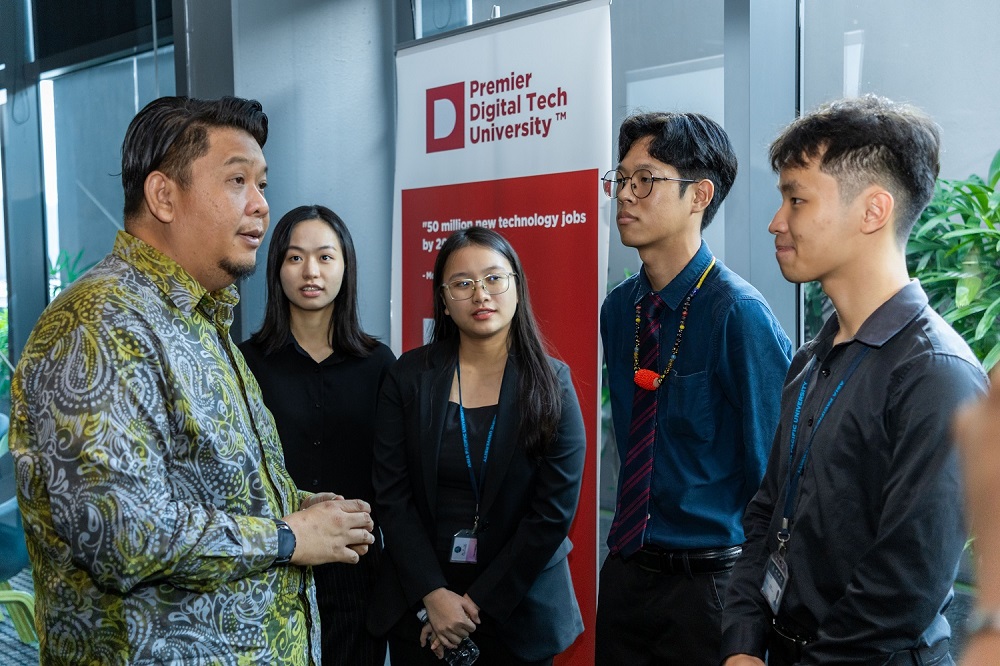
In a special meeting arranged during the visit, Dato Lukanisman, who is the Member of Parliament of Sibuti, Sarawak, met with four APU students from Sarawak: Ryan Goh Shun Jie (Diploma in International Studies), Chong Ri Rong (BSc in Actuarial Studies with Data Analytics), Ria Annice Jara Sunting (Bachelor in Banking and Finance), and Annabel Yu Li Yin (BSc in Computer Science with AI).
Expressing pride in their academic choices, he said, “It is encouraging to see Sarawakian students pursuing studies in emerging technologies that will directly contribute to Sarawak’s digital economic transformation.” He also briefed them on the benefits and opportunities offered by the Sarawak state government.
A Tour of Technological Excellence
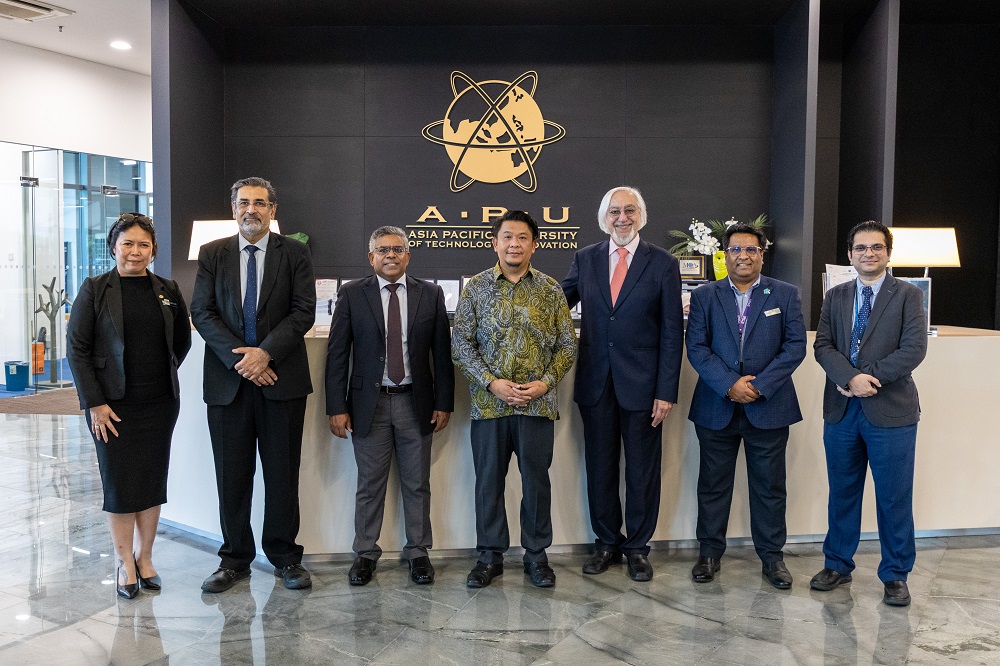
To round off the visit, the Deputy Health Minister and his delegation toured APU’s cutting-edge facilities, including the Cybersecurity Talent Zone (CTZ), FSeC, APCA, XR Studio, and APCoRE. These centres reflect APU’s relentless pursuit of excellence and its continued contribution to Malaysia’s digital and healthcare transformation.
The visit concluded with a token presentation and group photo session, marking the beginning of what promises to be a long-term, impactful collaboration between the Ministry of Health and APU.
News & Happening
Download e-Brochures
Intake Calendar
Want to know more ?
Let’s Connect